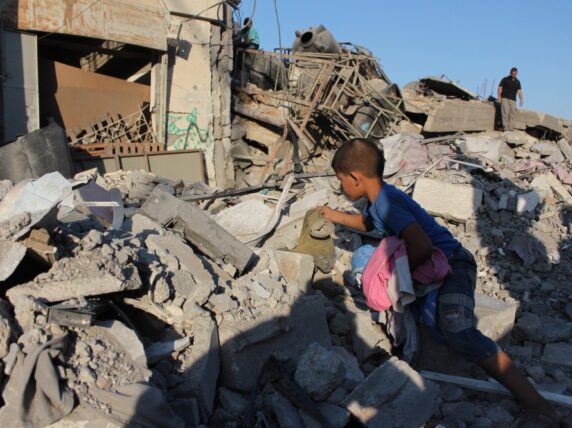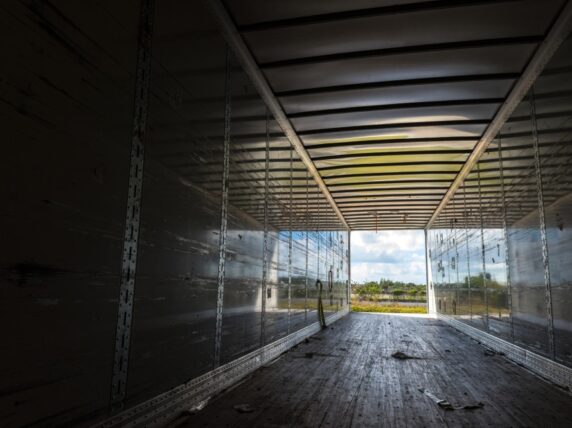NGOs must ensure a disability-inclusive approach to climate action
An estimated 20% of people most vulnerable to climate change are persons with disabilities. Yet they are rarely included in climate action.
Despite being among some of the most impacted by climate change, persons with disabilities, and their representative organisations, are frequently excluded from the decision-making processes and plans to address climate change.
This is how Deborah Iyute Oyuu, Programme Officer at the National Union of Disabled Persons of Uganda, recently described the issue:
The effects of climate change were socially distributed and followed the exact same pattern of pre-existing inequalities in societies that discriminated against persons with disabilities in multiple and intersectional ways. Solutions to climate change must address the root causes of social injustice, discrimination and inequality affecting persons with disabilities
Deborah Iyute Oyuu
Your time for action
If you, your colleagues or your organisation have never considered the importance of disability inclusion in climate action, now is the time to do so.
In the months leading up to COP26, Bond released a new Disability and Development Group (DDG) briefing. It highlights the huge potential for impact if the UK Government, and its relevant entities, lead by example to break down barriers and implement a disability-inclusive rights-based approach to climate action. The briefing is endorsed by Climate Action Network UK (CAN UK), with input from regional and international Organisations of Persons with Disability, including The European Disability Forum.
Subscribe to our newsletter
Our weekly email newsletter, Network News, is an indispensable weekly digest of the latest updates on funding, jobs, resources, news and learning opportunities in the international development sector.
Get Network NewsIt provides evidence of the inequalities faced by persons with disabilities, such as the fact that they experience poverty at more than twice the rate of persons without disabilities. This alone is a risk factor that the Intergovernmental Panel for Climate Change (IPCC) strongly associates with greater climate change vulnerability.
The UN Convention on the Rights of Persons with Disabilities (UNCRPD) specifically obliges its state parties to uphold a broad range of human rights held by persons with disabilities. And yet, the impacts of climate change pose a significant threat to some of their most basic rights, including the right to life, food, water, sanitation, movement, health, education, housing, livelihood, self-determination, culture, and property.
Making Disability Inclusion in Climate Action a priority
The world will soon gather at COP26 to move forward with measures to combat climate change. This is a vital time to ensure that people with disabilities, and their representative organisations, are afforded meaningful participation in the ongoing process. Involving them in the design and implementation of disability-inclusive climate action policies will not only enhance their human rights, but will also contribute contextual solutions for climate action.
The Bond DDG calls for an inclusive approach, encouraging you and your organisation to amplify the voice of persons with disabilities. In that vein, everyone involved in mainstream climate action must ensure that their activities are inclusive of and accessible for persons with disabilities. They must ensure that persons with disabilities are actively informed of, included in, and enabled to participate in global, regional, national and local climate campaigns.
Seven specific recommendations
In November, the UK Government will assume the Presidency of COP for the coming year. This is an opportunity to show proactive leadership. Enabling persons with disabilities to make a significant contribution to identifying, planning and implementing contextualised climate change risk reduction and adaptation measures, will ensure better outcomes for all.
The Bond DDG urges you to actively promote the following recommendations to the Government, and all those involved in climate action:
- Promote a disability-inclusive rights-based approach to climate action
- Apply an intersectional lens to domestic and international climate action
- Ensure there are mechanisms in place for the meaningful participation of persons with disabilities and their representative organisations
- Ensure that the UK’s International Climate Finance is directed towards mitigation and adaptation actions that are inclusive of, and accessible to, persons with disabilities and their representative organisations
- Integrate the full inclusion of the rights of persons with disabilities into domestic climate change action plans, communications and commitments
- Ensure all UK climate change-focused communications, events/multilateral fora (both in-person and online) are accessible to persons with disabilities and their representative organisations
- Catalyse a just transition to a future of work that contributes to sustainable development




